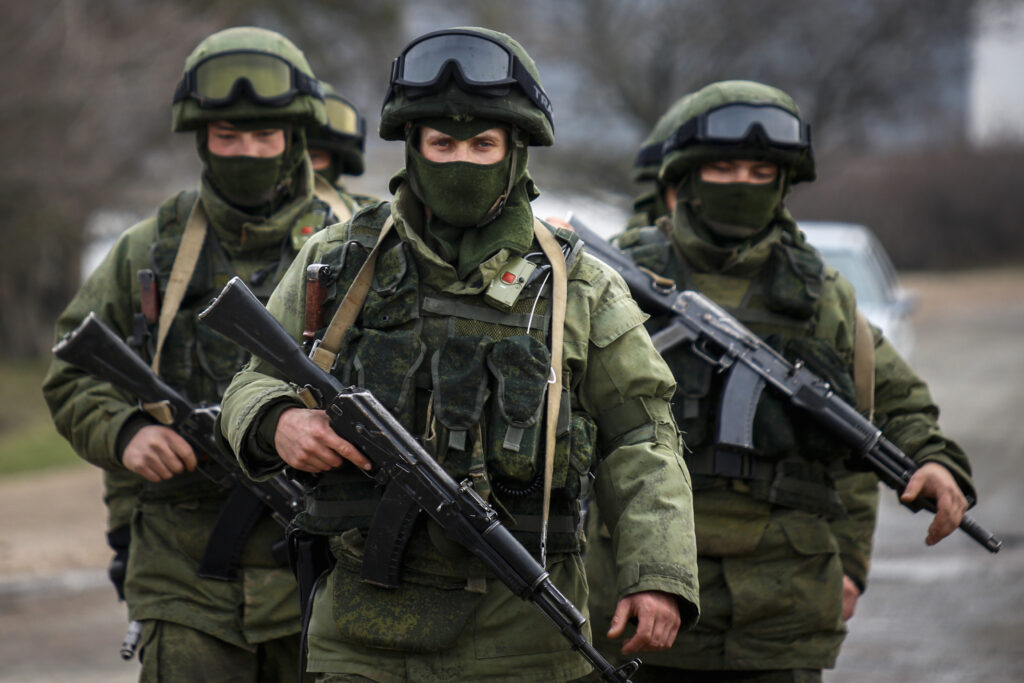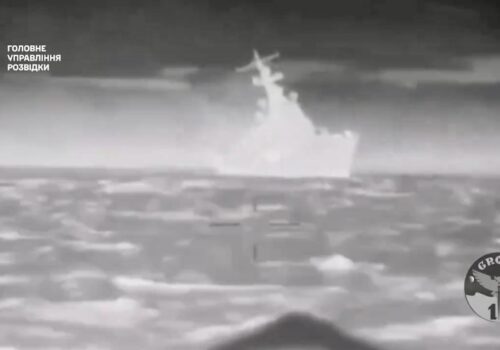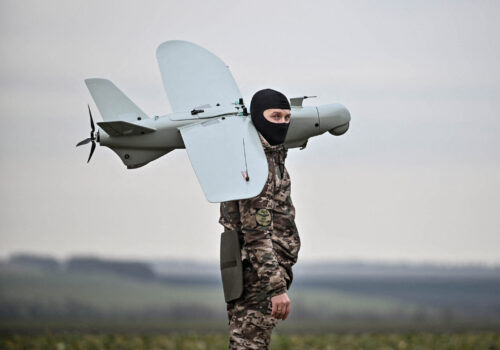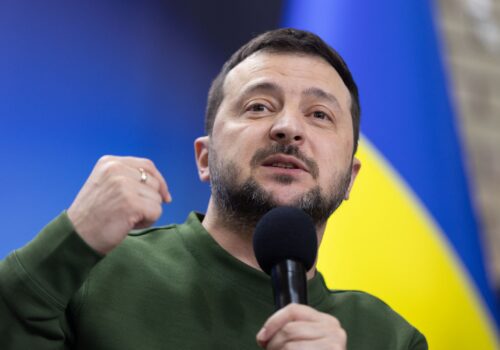On February 24, the world will reflect on the second anniversary of Russia’s full-scale invasion of Ukraine. While attention is understandably focused on the current phase of Russia’s war, this week also marked ten years since the Kremlin first began its attack on Ukraine with the military takeover of Crimea. One decade on, it should now be painfully obvious that the international community’s inadequate response to Russia’s 2014 occupation of Crimea was a geopolitical blunder of historic proportions that emboldened Vladimir Putin and set the stage for the biggest European invasion since World War II.
The Russian seizure of Crimea in early 2014 caught the watching world almost entirely by surprise. While Western leaders were quick to condemn the Kremlin’s actions, their response was marked by a high degree of caution. Crucially, there was no attempt to oppose the invasion militarily or arm Ukraine. Instead, Western leaders called on Kyiv to avoid any actions that might lead to an escalation.
This underwhelming response was to have disastrous consequences, helping to convince Putin that the West ultimately lacked the resolve to confront him. Nobel Prize Laureate and Ukrainian human rights lawyer Oleksandra Matviichuk has noted that Crimea established a dangerous precedent. “Crimea was a test because it was the first time since the Second World War that a country annexed a part of another country and the world did nothing,” she commented in 2023.
Stay updated
As the world watches the Russian invasion of Ukraine unfold, UkraineAlert delivers the best Atlantic Council expert insight and analysis on Ukraine twice a week directly to your inbox.
By adopting an overly cautious approach to the Russian invasion of Crimea, the West was guilty of seriously underestimating, or willfully ignoring, the true extent of Putin’s imperial ambitions. This refusal to accept the uncomfortable new geopolitical reality of an expansionist Russia only served to encourage the Kremlin.
In the weeks following the occupation of Crimea, Putin attempted to spark pro-Russian uprisings throughout southern and eastern Ukraine. When these efforts were largely thwarted by local Ukrainian opposition, he focused on instigating an armed conflict in the Donbas region of eastern Ukraine. Following the Crimean model, he once again used Russian troops and Kremlin agents posing as local militias. The war Putin unleashed in eastern Ukraine would remain unresolved for eight years before ultimately serving as his immediate excuse for the full-scale invasion of February 2022. However, the fuse was first lit in Crimea.
Since 2014, Russia has tightened its grip on Crimea. It has transformed the occupied Ukrainian peninsula into a military base, utilizing it as a jumping off point for the full-scale invasion of Ukraine. Crimea currently serves as an important logistical hub for the Russian military, acting as an airbase and naval base while playing a key role in the resupply of the Russian army in southern Ukraine.
Over the last decade, residents of occupied Crimea have been exposed to the repressive realities of Russian occupation. The US Department of State has determined that Crimean Tatars in particular have been subjected to “serious governmental and societal violence and discrimination.”
The many Ukrainian prisoners detained in Crimea reportedly face “mock executions, beatings, electric shocks, and sexual violence” from Russian occupation authorities that “commonly engage in torture of detainees and other abuses.” An estimated 208 Crimean political prisoners are currently behind bars in Russian-occupied Crimea, of which 125 are Crimean Tatars. Many of the repressive practices pioneered in occupied Crimea have since been used in other parts of Russian-occupied Ukraine.
Understandably, thousands have fled Crimea since 2014 and moved to mainland Ukraine. Meanwhile, the Kremlin has sought to transform the demographic makeup of the peninsula by importing hundreds of thousands of Russian citizens. These new arrivals include large numbers of military personnel, who have been deployed as part of an expanding Russian military presence on the peninsula.
Eurasia Center events

Today’s full-scale war underlines the folly of failing to immediately deter the Kremlin at the very beginning of Russia’s Ukraine invasion. When Putin first ordered the seizure of Crimea, he initially attempted to distance himself from the unfolding military operation and officially denied any direct involvement. However, once it became clear that the West would not impose serious costs, he was all too willing to claim personal responsibility for what was viewed in Russia as a major triumph.
This careful monitoring of Western reaction has been a constant feature of Russia’s attack on Ukraine, with Putin always ready to go further if he senses weakness. The fear of escalation that Western leaders first demonstrated during the capture of Crimea has continued to cloud their judgment throughout the past decade and has been skillfully exploited by Putin, who uses thinly veiled threats and nuclear blackmail to discourage international support for Ukraine as he expands the war and occupies more Ukrainian land.
There are now indications that Western leaders finally recognize the cost of appeasing Putin. “They stole Crimea. They stole Donbas. And now they want to steal the entire country. We must not let that happen,” commented Czech Foreign Minister Jan Lipavsky recently. Such clarity is welcome. However, it is crucial that strong statements are matched by the kind of decisive action that can defeat the Russian invasion of Ukraine and deter the Kremlin from embarking on further wars of aggression.
In hindsight, it is clear that the Russian occupation of Crimea was one of the great watershed moments of the twenty-first century. By militarily occupying and attempting to annex the territory of a neighboring European state, Putin was signaling the end of the post-1991 settlement and the dawning of a dangerous new era. Unless Putin is finally confronted and defeated in Ukraine, his sense of impunity will only increase and other countries will become victims of resurgent Russian imperialism.
Mercedes Sapuppo is a program assistant at the Atlantic Council’s Eurasia Center.
Further reading
The views expressed in UkraineAlert are solely those of the authors and do not necessarily reflect the views of the Atlantic Council, its staff, or its supporters.

The Eurasia Center’s mission is to enhance transatlantic cooperation in promoting stability, democratic values and prosperity in Eurasia, from Eastern Europe and Turkey in the West to the Caucasus, Russia and Central Asia in the East.
Follow us on social media
and support our work
Image: Russian soldiers in Crimea. March 2014. REUTERS/Thomas Peter




